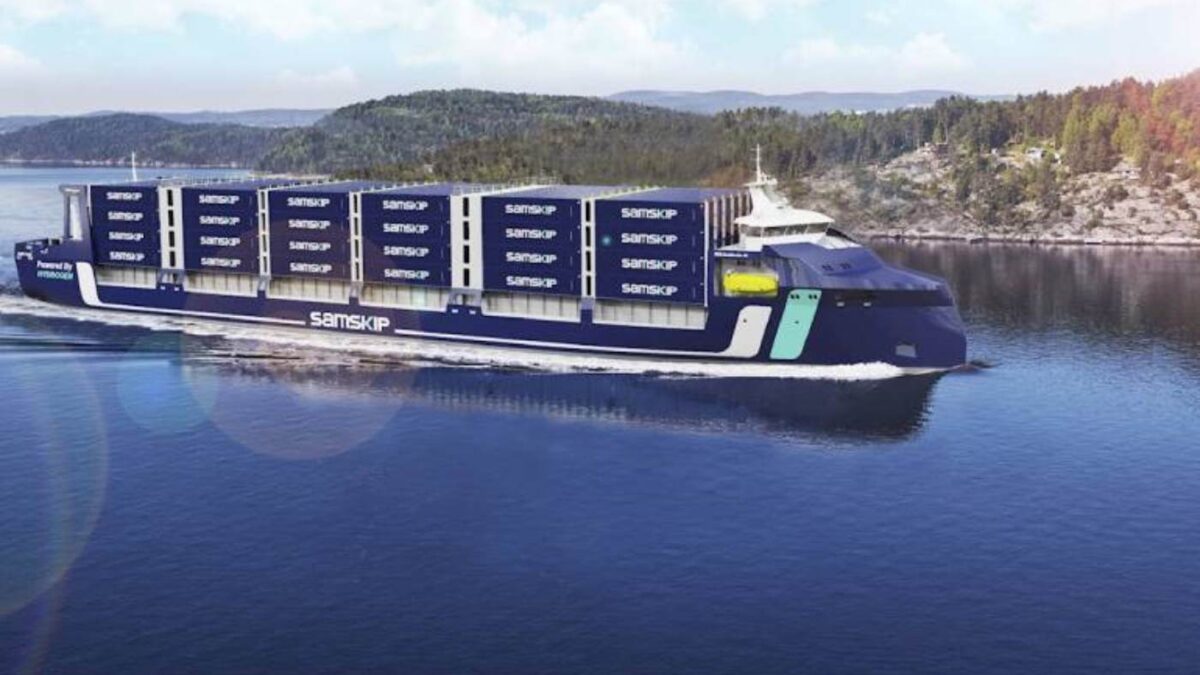Samskip Group To Unveil World’s First Hydrogen Fueled Container Ships
Multinational logistics company Samskip Group, will unveil world’s first two short-sea hydrogen-fueled container ships by the end of 2025
Multinational logistics company Samskip Group, will unveil world’s first two short-sea hydrogen-fueled container ships by the end of 2025. Cochin Shipyard Ltd, India’s largest shipbuilding and maintenance facility, is constructing the ships each measuring 135-meter. ABB (a leading pioneer in automation) will provide complete power, propulsion and automation systems.
Salient Features Of The Hydrogen Fueled Ship:
The ships will have a 3.2 MW hydrogen fuel cell, along with diesel generators for backup power. Each vessel will reduce annual CO2 emissions by approximately 25,000 tons when powered by fuel cells and using green shore power at the port of call. The logistics group aims to achieve net-zero by 2040.
The containers are expected to perform on par with the company’s conventional vessels even though they are setting new benchmarks for environmentally friendly operations, Samskip said in a press release.
The Green Technology:
In addition to incorporating the hydrogen fuel cells, the ABB package includes
• Onboard DC Grid power distribution system
• Energy storage solution control (automation technology)
• Ability System 800xA for operational efficiency
• Ability Remote Diagnostic Systems for round-the-clock remote support for improved safety and performance
Quotes:
Erik Hofmeester, Head, Fleet Management, Samskip Group, said, “These ships are a milestone for the maritime industry, delivering hydrogen fuel cells as a clean and renewable technology.”
“Cochin Shipyard is proud to partner with ABB in strengthening our position as an early mover in sustainable technology and supporting India’s vision to become a Global Hub for building Green Ships,” said Madhu S Nair, Chairman and Managing Director, Cochin Shipyard Limited.
“ABB is delighted to collaborate with Samskip and Cochin Shipyard Limited on this project which will help to avoid emissions and reduce operational expenses,” said Juha Koskela, Division President, ABB Marine & Ports. “ABB is at the forefront of shipping’s most ambitious plans for decarbonization and setting new standards for green maritime transportation.”
The project is co-funded by Norwegian state enterprise ENOVA. Operating under Norway’s Ministry of Climate and Environment, ENOVA promotes a shift towards more environmentally friendly energy consumption and production, as well as the development of energy and climate technology.
(Courtesy: WriteCanvas)
WriteCanvas provides various ESG related content services. For details please refer http://www.writecanvas.in

